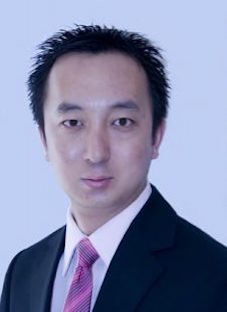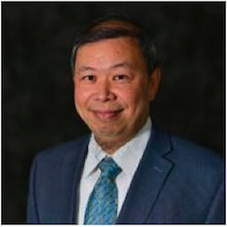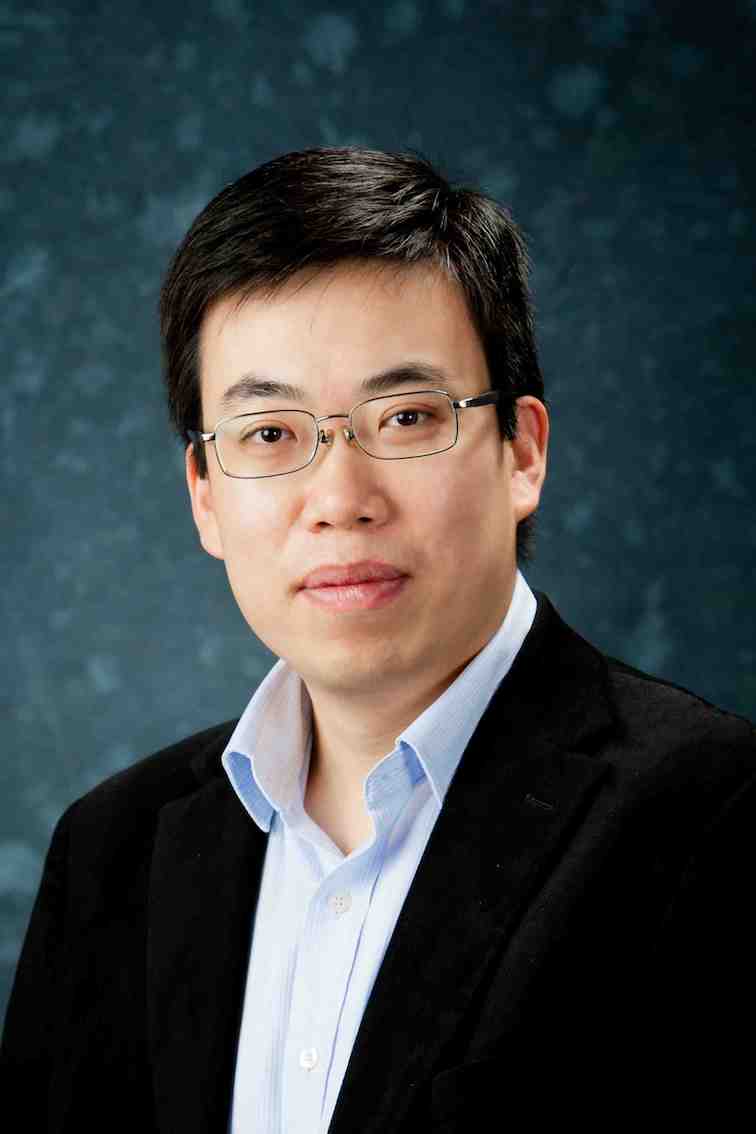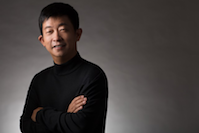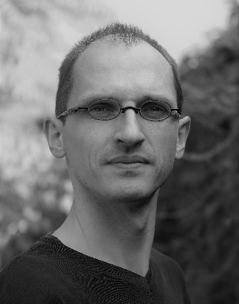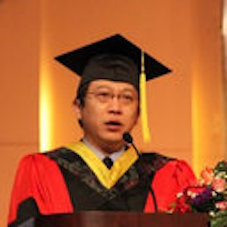Yue Gao
Queen Mary University of London
yue.gao@qmul.ac.uk
Biography of the instructor:
Yue Gao (known as Frank) is a Reader in Antennas and Signal Processing, and Director of Whitespace Machine Communication (WMC) Lab in the School of Electronic Engineering and Computer Science at at Queen Mary University of London (QMUL). He worked as Research Assistant, Lecturer (Assistant Professor) and Senior Lecturer (Associate Professor) at QMUL after his PhD degree obtained from QMUL in 2007. He is currently leading a team developing theoretical research into practice in the interdisciplinary area among smart antennas, signal processing, spectrum sharing and internet of things (IoT) applications. He has published over 140 peer-reviewed journal and conference papers, 2 patents, and 2 book chapters. He is an EPSRC Early Career Fellow (2018-2023) and a co-recipient of the EU Horizon Prize Award on Collaborative Spectrum Sharing in 2016, and has obtained the Research Performance Award from Faulty of Science and Engineering at QMUL in 2017. He is an Editor for the IEEE Transactions on Vehicular Technology, IEEE Wireless Communication Letter and China Communications. He has been served as Cognitive Radio Symposium Co-Chair of the IEEE GLOBECOM 2017, the Signal Processing for Communications Symposium Co-Chair for IEEE ICCC 2016, Publicity Co-Chair for IEEE GLOBECOM 2016, and General Chair of the IEEE WoWMoM and iWEM 2017. He is a Senior Member of IEEE, a Secretary of the IEEE Technical Committee on Cognitive Networks, and an IEEE Vehicular Technology Society Distinguished Lecturer.
Zhi Ding
Professor of Electrical and Computer Engineering, head of BRAT-Lab, on UC Davis campus
zding.ucdavis@gmail.com
Biography of the instructor:
Zhi Ding is a Professor of Electrical and Computer Engineering. He received the B.S. degree from Nanjing Institute of Technology in 1982, M.A.Sc. degree from the University of Toronto in 1987, and the Ph.D. degree from Cornell University in 1990, all in electrical engineering. He is currently Professor of Electrical and Computer Engineering, University of California, Davis.
His research contributions cover a broad range of signal processing and communication problems including wireless transceiver optimization, blind channel estimation and equalization, multi-input-multi-output communications, multiuser detection, source separation, adaptive signal processing, parameter estimation, radar target discrimination, multimedia wireless communications, and cross-layer wireless communications. He has published over 200 refereed papers and book chapters.
Dr. Ding is a Fellow of the IEEE. Dr. Ding is named 2004-06 Distinguished Lecturer by the IEEE Circuits and Systems Society. He also received the IEEE Outstanding Instructor of the Year Award in 2002 for contributions to electrical engineering education from the IEEE student section in University of California, Davis.
Tony Q.S. Quek
Singapore University of Technology and Design
tonyquek@sutd.edu.sg
Biography of the instructor:
Title: Designing Pricing Mechanism in Sharing Economy
Sharing economy has been disrupting various industries such as transportation, housing, food delivery, and professional services. Dynamic pricing is used as a key tool in the sharing economy to incentivise volatile participant-provided-supply to meet demand. In this talk, we provide a framework for the design of optimal pricing mechanism for sharing economy, where owners and renters come from a homogeneous pool of users. In particular, we design a dynamic pricing mechanism to allocate resources such that social welfare is maximized. Since the platform has no control over participants’ decision and has incomplete knowledge on participants’ payoff functions, it cannot optimize social welfare centrally. As such, we propose a decentralised mechanism, such that the equilibrium point of our algorithm is the optimal allocation of the non-convex social welfare maximization problem. Our simulation results illustrate that our algorithm converges to the optimal solution and is robust to system disruptions that might occur in practice.
Tony Q.S. Quek received the B.E. and M.E. degrees in Electrical and Electronics Engineering from Tokyo Institute of Technology, respectively. At Massachusetts Institute of Technology (MIT), he earned the Ph.D. in Electrical Engineering and Computer Science. Currently, he is a tenured Associate Professor with the Singapore University of Technology and Design (SUTD). He also serves as the Acting Head of ISTD Pillar and the Deputy Director of SUTD-ZJU IDEA. His current research topics include wireless communications and networking, security, big data processing, network intelligence, and IoT.
Dr. Quek has been actively involved in organizing and chairing sessions, and has served as a TPC member in numerous international conferences. He is currently an elected member of the IEEE Signal Processing Society SPCOM Technical Committee. He was an Executive Editorial Committee Member of the IEEE Transactions on Wireless Communications, an Editor of the IEEE Transactions on Communications, and an Editor of the IEEE Wireless Communications Letters. He is a co-author of the book “Small Cell Networks: Deployment, PHY Techniques, and Resource Allocation” published by Cambridge University Press in 2013 and the book “Cloud Radio Access Networks: Principles, Technologies, and Applications” by Cambridge University Press in 2016. He received the 2008 Philip Yeo Prize for Outstanding Achievement in Research, the IEEE Globecom 2010 Best Paper Award, the 2012 IEEE William R. Bennett Prize, the 2016 IEEE Signal Processing Society Young Author Best Paper Award, 2017 CTTC Early Achievement Award, 2017 IEEE ComSoc AP Outstanding Paper Award, and 2017 Clarivate Analytics Highly Cited Researcher. He is a Distinguished Lecturer of the IEEE Communications Society and a Fellow of IEEE.
Kwang-Cheng Chen
University of South Florida
Email: kwangcheng@usf.edu
Biography of the instructor:
Title: Ultra-Low Latency Mobile Networking by Artificial Intelligence
Autonomous (or unmanned) vehicles (AVs) merge as one major paradigm shift of the industry and human society, while introducing much more challenging in wireless networks beyond the connected vehicles. After the technology for single intelligent vehicle becoming mature, the real challenge comes from reliable, safe, real-time operation of autonomous vehicles in massive scale or smart manufacturing by robots. To achieve such multi-scale control, effective cloud computing, edge computing, and on-board computing, functions in real-time to interact with environments and other agents like vehicles and robots. Low-latency networking in the order of milliseconds is inevitably wanted to ensure successful computing and control in this most challenging Internet of Things. By introducing fog computing and proactive network association, realizing virtual cell by integrating open-loop radio transmission and error control, and innovating anticipatory mobility management through machine learning, we demonstrate a new avenue toward ultra-low latency mobile networking to enable massive operation of autonomous vehicles, robots, and smart manufacturing.
Kwang-Cheng Chen received the B.S. from the National Taiwan University in 1983, and the M.S. and Ph.D from the University of Maryland in 1987 and 1989, all in electrical engineering. From 1987 to 1998, Dr. Chen worked with SSE, COMSAT, IBM Thomas J. Watson Research Center, and National Tsing Hua University, in mobile communications and networks. During 1998-2016, he was the Distinguished Professor in the College of Electrical Engineering and Computer Science, National Taiwan University, and served as the Director, Graduate Institute of Communication engineering, Director, Communication Research Center, and Associate Dean for Academic Affairs in the College of EECS. Since 2016, Dr. Chen is a Professor at the Department of Electrical Engineering, University of South Florida. Dr. Chen founded a wireless IC design company in 2001, which was acquired by MediaTek Inc. in 2004. He has been actively involving in the organization of various IEEE conferences as General/TPC chair/co-chair (2002 IEEE Globecom, 2010 IEEE VTC-Spring, and 2020 IEEE Globecom), serving editorships with a few IEEE journals, and various IEEE volunteer services with IEEE Fellow Committee, IEEE VTS Fellow Evaluation Committee, IEEE VTS Distinguished Lecturer, etc. He founds and chairs the Technical Committee on Social Networks in the IEEE Communications Society. Dr. Chen also has contributed essential technology to various international standards like IEEE 802 wireless LANs, Bluetooth, LTE and LTE-A. He has authored and co-authored over 300 IEEE publications and more than 23 granted US patents. He co-edited (with R. DeMarca) the book Mobile WiMAX published by Wiley, and authored the book Principles of Communications published by River, and co-authored (with R. Prasad) another book Cognitive Radio Networks published by Wiley. Dr. Chen is an IEEE Fellow and has received a number of awards including 2011 IEEE COMSOC WTC Recognition Award, 2014 IEEE Jack Neubauer Memorial Award, 2014 IEEE COMSOC AP Outstanding Paper Award. Dr. Chen’s current research interests include wireless networks, artificial intelligence, IoT/CPS, social networks and data analytics, and cybersecurity.
Jianwei Huang
The Chinese University of Hong Kong
jianweihuang@gmail.com
Biography of the instructor:
Title: Economic Thinking of Communication Networks
Today’s communication networks are highly complex, carry heterogeneous traffic in diverse environments, and are often owned by multiple profit-making entities. To successfully maintain, optimize, and upgrade such large distributed networks, it is important to design new economic incentive mechanisms as well as develop new technologies. The market deregulation of the telecommunication industry in many countries makes such economic consideration even more urgent, as there are often conflicting goals between the regulators and the commercial operators. In this talk, we will first illustrate how economics can help us better understand the networking industry reality, predict user behaviors, envision new network services, and provide policy recommendations. Then we will focus on the case study of incentive mechanisms for user-provided networks (UPNs).
Jianwei Huang is a Professor and Director of the Network Communications and Economics Lab (ncel.ie.cuhk.edu.hk), in the Department of Information Engineering at the Chinese University of Hong Kong. He received the Ph.D. degree from Northwestern University in 2005, and worked as a Postdoc Research Associate at Princeton University during 2005-2007. He has published 240+ top international conference and journal papers, with 9400+ Google Scholar citations and an H-index of 48. He is the co-author of 9 Best Paper Awards, including IEEE Marconi Prize Paper Award in Wireless Communications in 2011. He has co-authored six books, including the textbook on “Wireless Network Pricing.” He received the CUHK Young Researcher Award in 2014 and IEEE ComSoc Asia-Pacific Outstanding Young Researcher Award in 2009. He has served as an Associate Editor of IEEE Transactions on Mobile Computing, IEEE/ACM Transactions on Networking, IEEE Transactions on Network Science and Engineering, IEEE Transactions on Wireless Communications, IEEE Journal on Selected Areas in Communications – Cognitive Radio Series, and IEEE Transactions on Cognitive Communications and Networking. He has served as an Editor of Wiley Information and Communication Technology Series, Springer Encyclopedia of Wireless Networks, and Springer Handbook of Cognitive Radio. He has served as the Chair of IEEE ComSoc Cognitive Network Technical Committee and Multimedia Communications Technical Committee. He is the recipient of IEEE ComSoc Multimedia Communications Technical Committee Distinguished Service Award in 2015 and IEEE GLOBECOM Outstanding Service Award in 2010. He is an IEEE Fellow, a Distinguished Lecturer of IEEE Communications Society, and a Clarivate Analytics Highly Cited Researcher in Computer Science. More detailed information can be found at http://jianwei.ie.cuhk.edu.hk/.
Zhu Han
University of Houston
hanzhu22@gmail.com
Biography of the instructor:
Title: Big Data Analysis and Cross-Layer Optimization for Communications, Caching and Computing (C^3) Networks
The recent advances of computing, caching, and communication (C^3) can have significant impacts on the future network design. In addition, there are many new technologies for big data analysis and cross-layer optimization. In this talk, we limit our scope to three specific cases, while want to give insights. First, a new formulation for bandwidth allocation and routing problem is formulated for wireless network virtualization, and the decomposition algorithms are constructed using the alternating direction method of multipliers that can be implemented in a parallel and distributed fashion. Second, the caching based D2D communication scheme is investigated by taking social ties among users and common interests into consideration, and the hypergraph and matching frameworks are employed for optimization. Third, we consider mobile social networks together with C^3 networks using deep learning to study social networks and a novel deep reinforcement learning approach to automatically make a decision for optimally allocating the network resources.
Zhu Han received the B.S. degree in electronic engineering from Tsinghua University, in 1997, and the M.S. and Ph.D. degrees in electrical engineering from the University of Maryland, College Park, in 1999 and 2003, respectively. From 2000 to 2002, he was an R&D Engineer of JDSU, Germantown, Maryland. From 2003 to 2006, he was a Research Associate at the University of Maryland. From 2006 to 2008, he was an assistant professor in Boise State University, Idaho. Currently, he is a full Professor in Electrical and Computer Engineering Department as well as Computer Science Department at University of Houston, Texas. His research interests include security, wireless resource allocation and management, wireless communications and networking, game theory, and wireless multimedia. Dr. Han is an NSF CAREER award recipient 2010. Dr. Han has several IEEE conference best paper awards, and winner of 2011 IEEE Fred W. Ellersick Prize, 2015 EURASIP Best Paper Award for the Journal on Advances in Signal Processing and 2016 IEEE Leonard G. Abraham Prize in the field of Communications Systems (Best Paper Award for IEEE Journal on Selected Areas on Communications). Dr. Han has been IEEE fellow since 2014 and IEEE Distinguished Lecturer since 2015. Dr. Han is 1% highly cited researcher 2017 according to Web of Science.
Klaus Moessner
Professor at University of Surrey
k.moessner@surrey.ac.uk
Biography of the instructor:
Title: Delivering high capacity in the below 6GHz bands
The future mobile and fixed networks have reached a point of unprecedented change as each attempt to meet the insatiable demand for data that is essentially driven by new applications and new types of communication need points/terminals. To be able to meet the demand for hugely increased capacity, super-fast connectivity that is delivered at any spot in the world and the seemingly seamless delivery of services requires a range of new technologies and new approaches. This speech will deliver an introduction to the problems that we face delivering the capacity promised for 5G and beyond networks, and concentrates on the aspects of capacity provision in the bands below 6GHz.
Klaus Moessner is Professor in Cognitive Networks in the 5G Innovation Centre (5GIC). He has been actively involved in the various European Community funded research frameworks (from FP 5 onwards). He has also had involvement in some 20+ other EU funded projects, has been technical manager and project manager, has led the FP7 project SocIoTal and is currently leading the H2020 EU-Japan project iKaaS, the 5G PPP project Speed5G, and since September 2017 the EU-Taiwan project Clear5G.Klaus’ research interests are around the aspects of resource management in wireless communication systems, reconfigurability on the different system levels, including reconfiguration management and scheduling in wireless networks as well as network supported adaptability of multimodal user interfaces. He was founding chair of the IEEE DySPAN working group 6 on Spectrum Sensing Interfaces.He is actively involved in the investigation and teaching of mobile service provision (including IoT deployments and services). His research includes the area of resource efficiency and on mechanisms for dynamic resource allocation. And he is contributing to the work on System Architecture and Co-existence aspects in the 5GIC, covering aspects including dynamic spectrum sharing/access, self-organisation of the radio access and the regulatory implications of DSA and Cognitive Radio Networks.
Since July 2017 Klaus is a member of the Board of Trustees of the Fraunhofer Institute for Open Communication Systems FOKUS, in Berlin, Germany.
Tommy Svensson
Chalmers Institute of technology
tommy.svensson@chalmers.se
Biography of the instructor:
Title: Integrated Moving Networks – Mutual Opportunities for Connected Vehicles and Mobile Networks
The usage of broadband services via mobile devices is steadily becoming increasingly important. With 5G, users will expect the connected society to be available with no limitations, and users will make use of bandwidth-demanding services like augmented reality and virtual office applications, also when on the move. In this context, future vehicles and transportation systems may play an important role in wireless networks by providing additional communications capabilities and becoming an integrated part of the communications infrastructure to improve capacity and coverage of the operator driven mobile networks. That is, in order to serve vehicular users effectively, one promising solution is to deploy moving base stations on the vehicles to form moving networks. However, the potential of moving base stations is not only to effectively serve in-vehicle users, but also to serve out-of-vehicle users by acting as cooperative ad-hoc small cell base stations in generalized heterogeneous mobile networks. Such integrated moving network nodes can also be used to efficiently support cloud-assisted driving and more general mobile edge computing solutions. Integrated moving network nodes also have the potential to be important enablers for realizing ultra-reliable communication links between vehicles and between mobile devices of other traffic participants in order to assist autonomous driving and new V2X services based on 5G mobile communications networks, which has the potential to substantially improve traffic safety and efficiency, provided that we also can handle the security aspects. This talk will introduce some key research topics we are working on in this field at Chalmers and within the EU H2020 5GPPP 5GCAR project (https://5gcar.eu/).
Tommy Svensson is Full Professor in Communication Systems at Chalmers University of Technology in Gothenburg, where he is leading the Wireless Systems research on air interface and wireless backhaul networking technologies for future wireless systems. He received a Ph.D. in Information theory from Chalmers in 2003, and he has worked at Ericsson AB with core networks, radio access networks, and microwave transmission products. He was involved in the European WINNER and ARTIST4G projects that made important contributions to the 3GPP LTE standards, the EU FP7 METIS and the EU H2020 5GPPP mmMAGIC 5G projects, and currently in the EU H2020 5GPPP 5GCar project, as well as in the ChaseOn antenna systems excellence center at Chalmers targeting mm-wave solutions for 5G access, backhaul and V2X scenarios. His research interests include design and analysis of physical layer algorithms, multiple access, resource allocation, cooperative systems, moving networks, and satellite networks. He has co-authored 4 books, 69 journal papers, 118 conference papers and 51 public EU projects deliverables. He is Chairman of the IEEE Sweden joint Vehicular Technology/ Communications/ Information Theory Societies chapter and editor of IEEE Transactions on Wireless Communications, and has been editor of IEEE Wireless Communications Letters, Guest Editor of several top journals, organized several tutorials and workshops at top IEEE conferences, and served as coordinator of the Communication Engineering Master’s Program at Chalmers, www.chalmers.se/en/staff/Pages/tommy-svensson.aspx.
Qinyu Zhang
Harbin Institute of Technology
zqy@hit.edu.cn
Biography of the instructor:
Title: Network Protocols for Future Deep Space Exploration
In the next two decades, humans are going to experience a grand age of deep-space exploration, especially in Mars and Lunar spaces. These relatively frequent and long-term activities provides the opportunity, and at the same time, demands the necessity for a true interplanetary networks as an essential infrastructures for future deep space exploration. In this talk, we try to provide a picture and a perspective in the current network protocol architectures for future deep space internetworking.
Qinyu Zhang got his bachelor degree in Communication Engineering from Harbin Institute of Technology, China, in 1994 and PhD degree in Electronics and Electrical Engineering from the University of Tokushima, Japan, in 2003, respectively. From 1999 to 2003, he was an assistant professor at the University of Tokushima. Since 2005, he has been a full professor of Harbin Institute of Technology Shenzhen Graduate School, and serves as the Dean of School of Electronic & Information Engineering. He is the founding chair of Communication Engineering Research Center supported by a couple of national research founding, He published more than 200 journal papers and 90+ patents got issued. He is the Founding Chair of the IEEE Communications Society Shenzhen Chapter. His research interests include space communications, wireless communications, cognitive radio and signal processing.



